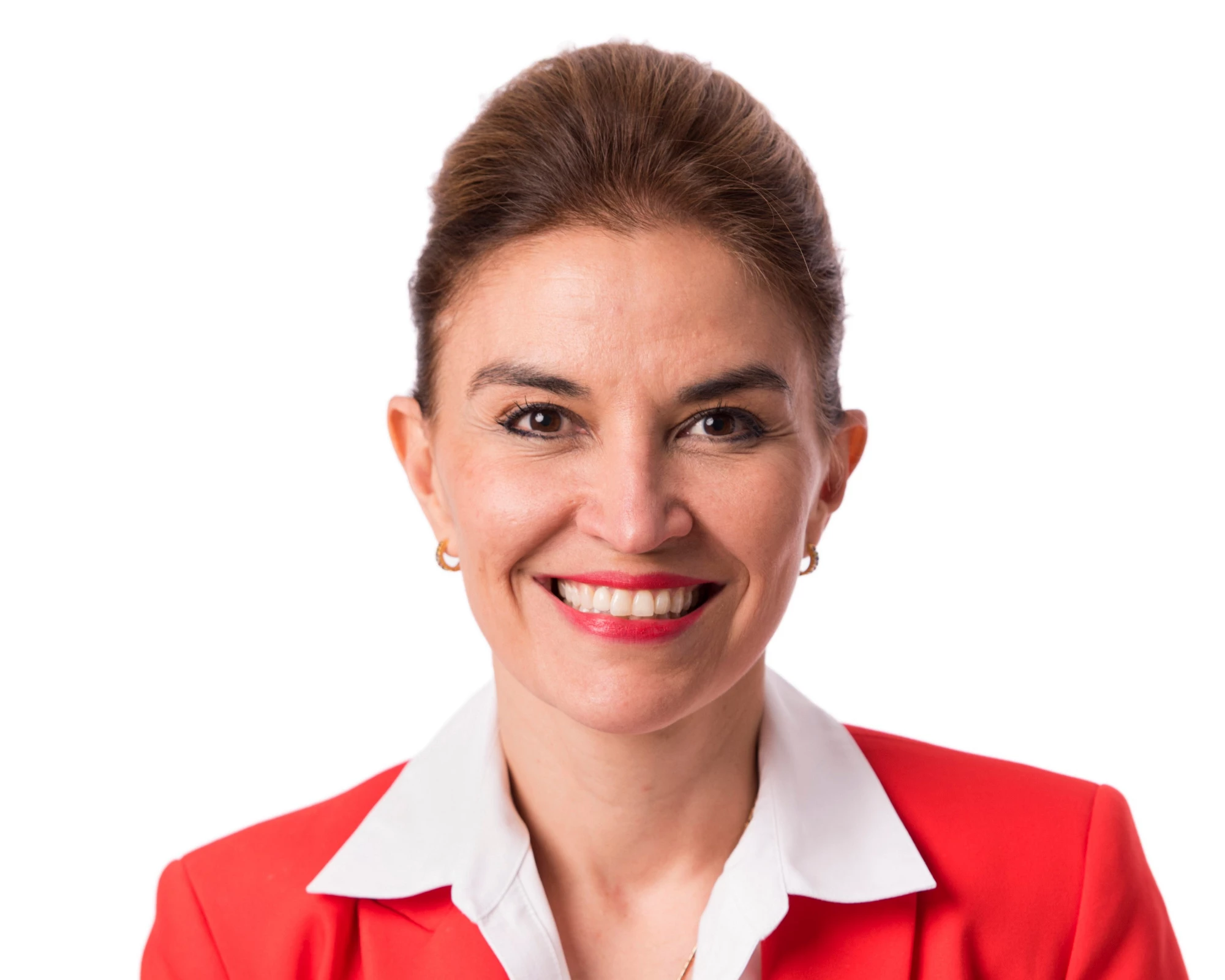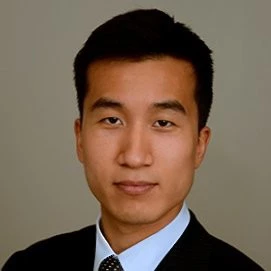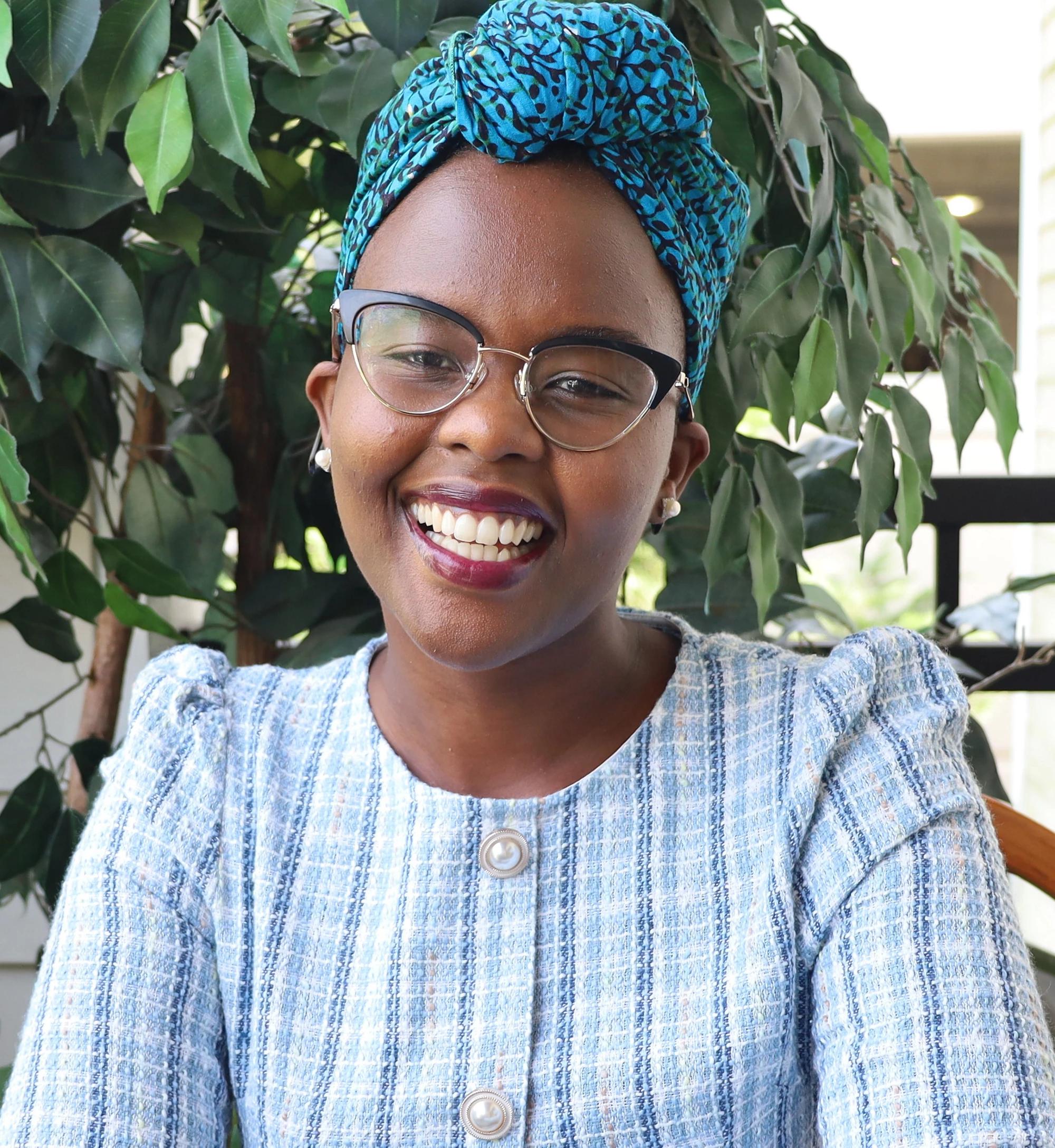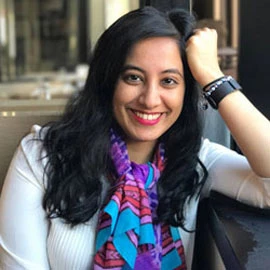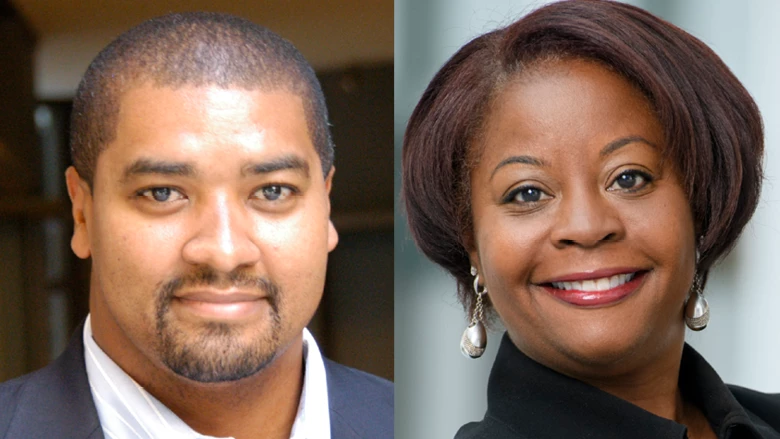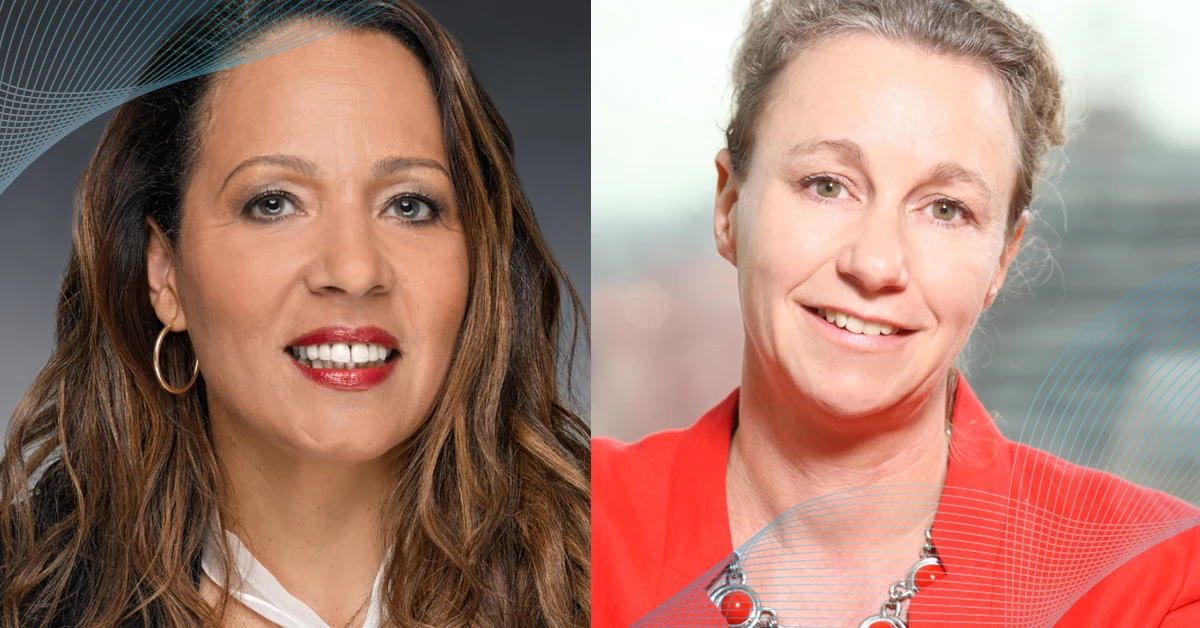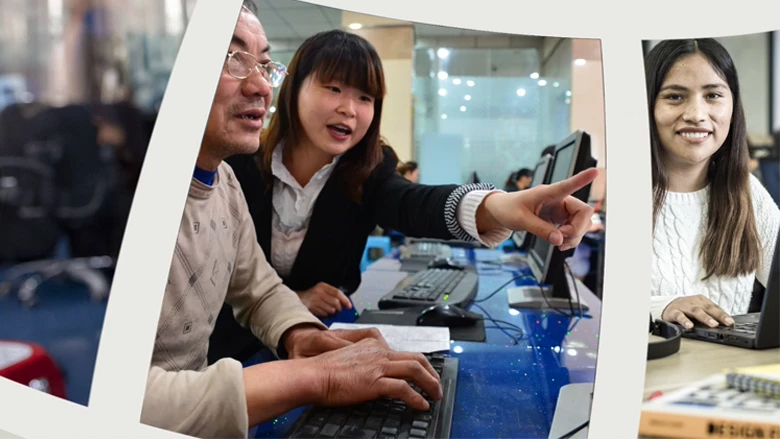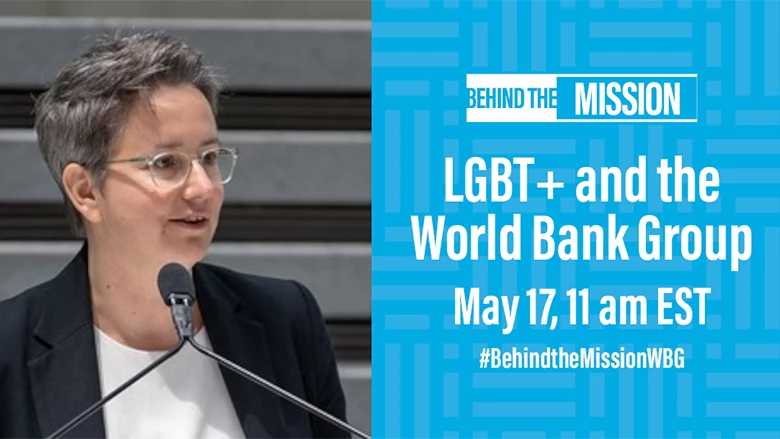[Srimathi Sridhar]
Good morning, good afternoon and good evening. Welcome to Behind The Mission, our monthly series, where we talk about what it takes and what it's like to work in international development. I'm your host Srimathi Sridhar. Today's episode is all about the World Bank Group's Young Professionals Program, popularly known as the YPP. Young professionals are recruited from all over the world with various academic and professional backgrounds to work at either the World Bank, the International Finance Corporation or the Multilateral Investment Guarantee Agency. Applications for this year's cohort are currently open. Today we're going to hear firsthand from the YPP's program manager, Vilma Aguilar, as well as two young professionals, Vicky Chemutai from the World Bank and Jacob Kim from the International Finance Corporation about the program as well as their experiences. But first, before we get any further, here's a sneak peek of what it's like to be a young professional at the World Bank Group.
[...]
[Srimathi Sridhar]
Now, if you're interested in applying this year, make sure to bookmark the YPP website. It's www.worldbank.org/ypp. Don't forget to engage with us throughout the program today, you can follow along online with the #BehindTheMissionWBG and post your questions and comments. We do have colleagues that are working hard behind the scenes to answer them. With that, Vilma, Vicky, Jacob, welcome. It's great to have the three of you here today to talk about the Young Professionals Program. I want to start off by asking each one of you a question and please do give viewers a brief introduction before you answer. Vilma, let me start with you by asking more about the YPP. You're now its program manager. So, how has that been? Tell us more about it.
[Vilma Aguilar]
Sure. Well, I've been in the World Bank now for over 20 years and I've never been a young professional, but I've always admired it, I was interested and it's been really a dream job. My background is in HR and I've been able to work in the recruitment, in the onboarding, in the development curriculum of these young professionals. It's really a pleasure. Yes, it's been virtual so we've had to redesign things a little bit, but it's been super. I really enjoy it.
[Srimathi Sridhar]
Well, it's great to have you here, Vilma. I want to turn now to Vicky and Jacob, you both are currently young professionals. Vicky you're at the World Bank, Jacob you're at the IFC. It would be great to get your firsthand experience and also reactions to the program. Vicky, let me start here with you. What drew you to apply to the YPP and what's been your experience?
[Vicky Chemutai]
Thank you so much Sri, and it's great to be here discussing this today. As you said, I'm Vicky Chemutai, I come from Uganda and I am currently a young professional with a trade and regional integration unit, which is nicely situated between macroeconomics trade and investment and finance competitiveness and innovation global practices. I know that's quite a mouthful, but you get used to it once you join the Bank. But what drew me to get into the development space initially, sort of allow me to tell a little bit of a story. When I was growing up, I just didn't understand why issues like acute hunger existed. It didn't make sense to me that there's some people that just had so much, that there was waste, and then there were those that were dying of hunger. Why did that inequality exist and why has it been perpetuated for so long?
If a country cannot produce enough food, why wasn't it so easy for us to import it? What barriers really existed? The sad thing is these issues still exist to date, and they're only being exacerbated by the multiplicity of crisis that are ongoing, whether it's geopolitical or climate change issues, you name it. This sort of brings me into my hugest topic of interest, which is climate change, that I'm definitely passionate about. My grandmother in [inaudible], Uganda, who relied on subsistence farming, her whole life has seen her yields drastically reduce over time. The dry seasons have prolonged. The stream that is near her house that used to gush a lot of water has now just become trickling little drops. Whatever extra produce she used to get from farming would then be sold. Right? But now if you have low yields, there's little to... or nothing to trade.
Her incomes from farming are just very low. So, how can she be helped to adapt? What is the ease of her accessing drought resistance seeds? Are there adequate storage facilities to increase the shelf life of produce? How can she get access to both local and possibly regional markets, neighboring countries? What is the role of the public and the private sectors in this regard? What is the role of international organizations? At some point I started a business sort of selling hats in Kampala, but it didn't take off. Why? Beyond the indigenous factors in that business, were there any barriers in the business environment, in my country, such as access to credit, financing. What reforms are really needed for small and medium sized enterprises to thrive?
I looked to the World Bank as that one institution that touches upon all of these issues. It's whole mission really, if you look at it is to bring down inequality, foster sustainable growth among others. This institution also constantly creates knowledge to help us understand why some of these issues exist. Also, it gives governments a necessary support. Just look at its lending portfolio, billions and billions of dollars have gone into it. So, my personal experiences and thoughts sort of before I sleep and questions that I think about were really what motivated me to apply to development institutions such as the World Bank.
Ultimately, I hope one day I can get enough experience so I can go to my home country in Uganda and really try and do some good. Back to the program, the YPP, what has my experience been thus far? I would say phenomenal, times 3000, like Ironman would say. I'm working on topics I'm deeply passionate about with brilliant minds. I'm in a global team. I really focus on producing analytical outputs mostly, specifically, I co-lead the unit's work on trade and climate change. We produce analysis that is useful to country teams who have relevant components in their operational projects. For much recently, we've been doing a lot of work on this country climate development reports. Many of you may have heard of those, they're called CCDRs and therefore each and every country. We've gone from Philippines to Egypt, to Morocco. We've done a lot of work in that regard.
Although I really haven't traveled as much because of the pandemic, I've had the opportunity to still travel to a few locations, to share some of our findings to global audiences. I've participated in several panels. The beauty is how much you learn from these sessions when there's a huge diversity of thinking around the table. I hope that basically sums up my motivation to work in development at the World Bank and what my YPP experience has been thus far.
[Srimathi Sridhar]
Thanks so much Vicky. I mean, hearing your background, hearing what the YP program has been like for you, I can tell that it's been really fruitful and that you're grateful for this opportunity. So Jacob, let me now turn over to you. Tell us your thoughts on being a young professional at the IFC.
[Jacob Kim]
Yeah. So the YPP was also my dream job so super happy to be here to talk about the program and about my experience. To introduce myself, I'm from Michigan, I'm a US national, but also grew up in South Korea. I joined YPP in 2020 after graduating from Wharton with MBA and the University of Pennsylvania with a master's in international studies. My experience has been phenomenal as well. Being the pandemic class of 2020, it's a little atypical from other experiences that other cohorts had, but having this group of peers to turn to for help and just talking about navigating the onboarding process and adjusting to the room of work format has been super helpful. Also, notable to say that we're the first IFC cohort to have cross Bank rotation built in, and I can speak more on that later, but that experience has taught me a lot and being exposed to our counterparts at the World Bank during our second cross Bank rotation has been super helpful.
[Srimathi Sridhar]
Thanks so much, Jacob. It's great to have both you and Vicky here to give us a first person account of being a YP. Vilma, I want to come back to you because there's a lot of different ways that individuals can get their foot at the door here, right? Whether it's applying to an actual job or an internship, or even a consultancy. So, what would you say makes the YPP a unique and attractive option? Tell us about how the YPP promotes diversity and inclusion in its recruitment process.
[Vilma Aguilar]
Sure, sure. So let me talk a little bit about what the program involves and what the process is like to apply, and a little bit about the eligibility criteria. To be considered for the YPP program, applicants must be born on or after October 1st, 1990. Okay. The spirit is they have to be no older than 32 once they join. There is no exception. I get a lot of questions about that. They need to have a graduate level education that can be, for example, a masters in any field related to the kind of work that we do and related to the experience they have. For those of you who want to learn a little bit more, I would encourage you to learn about the Bank's operations. Our application has a list of the business areas we consider candidates for. That would be probably the first thing you would need to do to see if you have the skills in the profile to apply.
English of course, English proficiency is key. Additional languages are super. They're a plus. We really value that in our candidates. Now, in terms of what the program entails. Candidates come in with a five year term employment contract that is renewable without any limitations. The first two years they're called young professionals. Those two years are key, and that is where they have an entire team at their... supporting them, that includes not just the YP team, but also we work with finding a mentor, their manager assigned a technical buddy, they have a YP buddy from a previous cohort that works to support them. Then there's an entire calendar of events of what learning activities, anything from communications to World Bank policies. It's very tailored to what they do. Of course, we're a cohort. So this involves IFC, IBRD and MIGA's YPs that are together in the same cohort.
That cohort is a support system in itself. So they can call each other, they have questions, or I'm facing this right now. What do you all think? Or what's the resource for this? It's a great support mechanism. In terms of the diversity, we are truly, I want to say blessed in that, we get fantastic candidates from all over the world. I am proud to say, and it's really a joy to see them come and grow. Of course, with this supporting environment, it's really helpful. We keep in touch with them. They can call different members of the team whenever they have questions. That kind of gives a sense of the program, the criteria and the kind of support they get when they come in through the Young Professionals Program.
[Srimathi Sridhar]
Thanks Vilma. I remember mentioning this to you separately too, that going just through the YPP website, it was great to see kind of how it's adapted to also become so accessible, right, in terms of the videos and the brochures and the pamphlets that you have. That's great to see. Before we continue on, I did want to acknowledge our online audience. We share these episodes across our social channels, and we always get a ton of questions coming in. In the spirit of that, I wanted to take a look at a couple of those questions. We have one here from Sakshi Joshi who wants to know, what are the key factors that you see in a perfect candidate? I think what we're asking here really is what does it take to be a successful applicant for the YPP? Who would like to take this one?
[Vilma Aguilar]
Maybe we can all see from our perspective. I would say a common denominator is passion for development. When you heard Vicky and Jacob talk about what they do, it's like they lit up talking about it. That's the kind of passion we want to see reflected through the research they did in school, through the kind of work they did. This includes internships, volunteer work, summer work. We recognize that passion comes in through those types of experiences. Like I mentioned, languages are a big plus. We really value being able to talk to our client countries in their language. If we have that, it's an added plus to the relationship. We talk about the T profile. That's a depth of expertise. Something that you've built around your particular area, your experience is let's say aligning. You're becoming an expert in a particular area, but the breadth means the ability to talk to, or to talk about areas that we need to work with to make our projects or our work successful. It doesn't mean we know about everything. It just means that we know what other topics or areas are important to impact, in a positive way, the work that we're doing.
[Srimathi Sridhar]
Thanks, Vilma. Actually, if you're watching, I hope you're taking some notes there. Some really good tips there coming from Vilma. Our second question comes from Elizabeth and she wants to know about the YP program as it pertains to work life balance. Again, another important area for us to consider. She wants to know if the YPP is suitable for a person who wants to spend quality time with family on a daily basis. I think getting into kind of the program structure and also its workload. So, who'd like to take this one?
[Vicky Chemutai]
I guess I can. We have a family, we have a very naughty three year old and he goes to daycare from 8:00 AM to 5:30 PM. So, basically a typical work day. We walk out with our teas and coffees and he walks out with his juice box. We get back home at the same time and have dinner together. Of course, when I do travel on missions, it helps to have a supportive partner. I think with the whole concept of work life balance, it is what you make it. It is available. The system, the structure of the program allows you to seize it. Your manager allows it, facilitates it. It's up to you to have the discussion with that manager to say, you know what, this is my work program, these are the deliverables that I would like to put across, given a certain amount of time, this is a team composition that I'm working with.
So at the very outset, when you start your position with your manager, you need to have that discussion. He needs to also see that, yes, you're coming to ask for some of this understanding when it comes to work life balance, but you also need to be able to deliver. Your manager is really your greatest champion. That's one thing everybody should remember. It was hard for me initially at the outset with the work life balance. But I spoke to my manager, he's just a great, great champion of mine. He enabled me to work through it perfectly. So, it really boils down to how you want to handle it individually.
Srimathi Sridhar:
And being open and transparent like you, I think is a good way to do that. Thanks Vicky. I think you've put to ease Elizabeth and hopefully anyone else watching this program who has a family and may want to apply. So ladies, thank you both for taking the time to answer a couple of those questions from our online audience. I think this segways quite nicely into our next section, as we delve a bit deeper into the program. Vicky, Jacob, a part of the application is a short essay. So do you remember yours? If so, what did you write about and what tips could you give applicants? Jacob, let me start with you. I know the process is a little different at the IFC, but tell us more about the process for you.
[Jacob Kim]
Great. Yeah. Vilma spoke about your passion for international development. I do think that, that's the common denominator all across YPs. For some of the IFC applicants who might have more private sector background, it can be tough to think about what to bring in your application, but try to be creative and think outside the box and even tap into your academic past. Think your classes, your projects. For me, I talked about my undergraduate and graduate thesis, both of which dealt with the emerging markets. It also talked about ecology field trip to Panama during college, trip to Madagascar to study the interaction between human development and environment during my graduate school studies, as well as impact investing fellowship that I did in the Nicaragua. All those things can be also brought out to the resident profile.
For IFC, there's a modeling test component. If you did accounting studies or business studies, I do think that you're already well prepped, but if you haven't, there are additional resources that you can self-study. There are platforms out there like Wall Street Prep. But I think that if you did a little preparation, then you'll be all set. I also do research that... about development institutions to make sure that it's a good fit. Some of us have learned about World Bank, IFC through some classes, but those materials might be outdated and the world is changing fast and IFC and World Bank are also adopting to that. With COVID 19 and climate change becoming more prevalent and important, we have been strategizing around that. Also, it is super important to have candidates who bring new ideas to the table.
[Srimathi Sridhar]
Certainly. Thanks, Jacob. Vicky, let me turn it over to you. Tell us about your essay if you had one and what tips you can give applicants.
[Vicky Chemutai]
Thank you so much Sri. Jacob has mentioned some very, very good points, at least touching upon the substance of what could constitute... what could be in that essay. What I wrote about was really how development progress has been unequal. Really the main issues that I said in my introduction and the need for appropriate solutions and sequencing required to address these problems. And drawing from my own work streams, I've worked in the public sector, a little bit in the private sector, and I've also worked in the international organization.
Drawing from that work experience, but also from my academic experience, I did quantitative economics and then I also did trade policy. So, drawing from those two, I tried to write about how each of these experiences contributes to about three World Bank priority areas, and the first one I think was accelerating and sustainable and inclusive economic growth. I think the second one was building human capital. Then I think the third one was fostering resilience to global shocks and threats.
So, you remember what Vilma said, she's talked about looking for breadth and depth. So I did try to illustrate how I have a degree of breadth, as well as depth in some of these main World Bank areas. I have two tips for possible applicants. Number one is I urge you to find your reason, your personal reason for why, what is your story? Each one of us has a story. In that story, you have either faced or witnessed a particular struggle that shook you to the core and made you question, what in your power could you do to help. In your homeland, what developmental issue touches your soul? Do you have... do you think you could do a better job at solving it? Do you have any creative ideas? Why is that so? What would you do differently? When you think about that developmental issue that itches your mind, you are able to then factor that and have your passion come out as you write that essay. The second point is structure. Be very, very structured. I couldn't stress this enough. In writing that essay and even in the interview process, always be structured in your responses. There are always, for every single question, there are always several variables and there's a multiplicity of layers to consider when you're responding to that question. So always remember to structure it as such.
[Srimathi Sridhar]
Really good tips there Vicky. Vilma, Jacob and Vicky just shared some of their tips for writing a compelling essay, but as someone who goes through these applications, what would be your tips? I know we touched briefly about the successful candidate, but what stood out for you in the past?
[Vilma Aguilar]
I think they have given great tips, so I will try and complement what they already said, which I completely agree with. So, number one, before you even sit down to write your essay, I would recommend that you read about the World Bank Group, what it does. If you're applying to IFC, understand the subtleties. Their focus is on private sector, what kind of work do they do? What kind of work is done in the different global practices of the World Bank Group? Because the most important decision an applicant will probably make is to indicate which business area they want to be considered for. They need to understand it. I've had situations where they apply to one business area, but it's really not the right fit. We try to channel it if there's a second one listed, but truly that shows whether they understand the kind of work we do in that business area, yes or no.
Then for purposes, again, a couple of other tips, because it's not just the essay. Obviously understanding what the World Bank does in that particular business area you're applying for is a big one. Then a couple of tips. If you're applying to IFC, you will be expected to take a finance test. That's a little bit different than the IBRD will not ask for a test, but in both IFC and IBRD side applications, you would be asked to submit a HireVue video recorded interview if you pass the first initial stage. So, practice that. That is a video recording. It's very common right now in job search processes.
Prepare. So test yourself. Again, read up. If everything goes well... and again, the technical experts will be looking at the essay, the reference letters, that HireVue, in IFC they will also be looking at the finance test results. If you come to that in person interview, definitely again, take a read up on what the Bank is doing in particular regions, in particular countries, come prepared. Again, that structured part is important because some people present just... they answer to such a point that the context is not provided, or they go in different directions and it doesn't come across as structured. All that really helps.
[Srimathi Sridhar]
Thanks, Vilma. It's one of those things you probably can never say enough, but just come prepared, I think is really the most important thing to keep in mind when you're applying. Before we get to the last question, Vicky, Jacob, I did want to come back to you both because I was curious if there was anything about the Young Professionals Program that surprised you in a way that you hadn't considered. I guess what I mean here is, when I look at the role I'm in today and the opportunities it's opened up for me, I never would have imagined that when I was on the other side applying. Curious if kind of, you guys have felt similarly in your roles. Vicky, let me start with you here.
[Vicky Chemutai]
Thank you so much Sri. I joined the World Bank in 2017 as a consultant. I wanted to get into the YPP program so badly. I applied the first time, did not get in, second time, did not get in. Then I managed to get in the third time. My motivation for applying to the YPP was because of the fact that... I mean, aside from every... all the things you've heard today, there's a rotation that it allows. It allows candidate to rotate to different work thematic areas, different regions. I thought that's a really nice way to get the holistic overview of developmental issues over time. That's why I got into the YPP. Now, what surprised me pleasantly from joining the YPP was the degree of access. The degree of access is beyond the body. It's phenomenal.
The program sort of creates this strong enabling environment for mentorship to grow, both as a mentor and as a mentee. You have accessibility to all parts of the Bank to discuss issues and topics of interest, and because of how the program is structured, you have former YPs who are now leaders of the institution being very, very keen to mentor you and provide guidance that's imperative to the growth of any career professional. There's also a huge list of incredible resources in addition to that dedicated YPP support program that Vilma talked about, and these training programs range from technical to professional behavioral types. There's a YPP mentor, you get a YPP buddy, there's full support team rotation, the access to former YPs who are now leaders of the Bank. It's just way more than I would've ever thought of as a consultant. I guess that's the edge of the YPP.
[Srimathi Sridhar]
Thanks, Vicky. I'm really glad that you mentioned mentorship because it is a vital aspect to all of our careers. It's good to hear that being a YP has given you access to it. But I do want to emphasize what you said at the beginning about how you applied the first time and you didn't get it, but you kept trying, and I think that's an important message to get across, because I think people... this happens to people all the time. You try once and it doesn't work out and then you just give up. I think a good message there to kind of keep trying if it's what you really want, you can make it happen. Jacob, let me now turn to you and get your thoughts on this. Has anything about the program surprised you?
[Jacob Kim]
Yeah, I have similar points as Vicky, but I'll provide my own examples. First the ability to move within and across World Bank Group is truly unparalleled compared to any other programs offered. I knew that it would consist of rotations when I first entered, but what I didn't realize is the ability to explore your interests and really tailor your rotations to your interests. The World Bank Group does everything that's related to socioeconomic development, so the possibilities are endless. For me, how it worked out was my passion's water. So, my first rotation was Brazil, public private partnership advisory during which I was able to do one water project. Then I crossed over to the World Bank to work with the Water Global Practice, where I learned about the comprehensive issues in water. Currently I'm at the municipal and environmental infrastructure team back at IFC, which invests in water, waste and cities.
I really came a full circle and was able to make a storyline out of my rotations, which I'm very thankful for. Finally, as Vilma pointed out, this is the flagship postgraduate recruitment program at World Bank Group. So, there are a lot of resources behind it and it's a very privileged position to be in with access to all these trainings and senior management. One example that I like to highlight is as IFC YPs we have the opportunity to participate in the operation committees. These are the meetings where the most complex decisions are being made. You get to participate as a minutes taker and you listen into senior managements discussing live, and you really learn a lot from how the organization thinks about some of the most challenging situations.
[Srimathi Sridhar]
Thanks, Jacob. I mean, hearing you both, I think definitely some great benefits and opportunities that come out of this. I know this is music to the ears of interested applicants listening in right now. We have reached nearly the end of our conversation here today but before I let the three of you go, I did want to ask, what is the best piece of advice you could give to someone who wants to apply to the Young Professionals Program, or really just wants to join an international organization such as the World Bank Group? Vilma, let me start with you.
[Vilma Aguilar]
Sure. Well, number one, I want to remind everyone that there's different doors to enter the organization. The Young Professionals Program is a great one. It's not the only one and so if you're over the eligibility requirement age, or maybe you haven't finished your degree yet, feel free to check out our careers page. We have several programs, internships, fellowship programs that may be of interest to some candidates. Keep an eye out on what's posted out there. You can sign up for job alerts and you can actually get emails notifying you when a particular position opens up with the criteria that you've listed you're interested in. Keep that in mind. For the YPP program, I do want to remind everyone the window is from June 15th to July 15th for World Bank, IFC and MIGA profiles.
Then we open up again in August 16th through September 20th for IFC and MIGA profiles. Show us your best. The last tip, because some people say, "Well, I have a little bit of experience here and a little bit of experience there." Remember we're looking for the T. So pick the one where it shows the... I guess, where you feel most competitive in and you always have the opportunity like Vicky and Jacob have shared. If you are in the program, you can rotate that second year. So, if you have multiple interests, you can always explore a rotation in a different area where you're interested in.
[Srimathi Sridhar]
Thanks Vilma. I'm reminded of something you said earlier. When Vicky and Jacob were speaking of their experiences, they really did light up. I think that's where that passion that you're looking for really comes into play. Vicky, let me turn it over to you. What is your piece of advice?
[Vicky Chemutai]
Thanks Sri. So, I think in one sentence, first identify your why, your reason and structure what you can offer, your competitive edge. With your academic training and work experiences, your background, what do you want to be? Even if that's not really clear at this stage, what you enjoy doing now, whether it's legal work, finance, economics, tech innovation, agriculture, you name it. Carefully structure that "why", break it down and how it ties with your technical and creative strengths and then open a Word document and start typing. That's it.
[Srimathi Sridhar]
That's a very good process. Thank you, Vicky. Last but not least, Jacob.
[Jacob Kim]
Yes. I wanted to share these two tips. I'd like to reiterate the importance of languages at this organization. It's a very multicultural, multi-linguistic organization and many of the job postings will take you abroad where you'll be working with local staff and talking to local clients. I've been learning Portuguese while I've been working. There are opportunities to continue learning as you're part of the YP program, but it definitely helps to have had more languages under your belt coming in to facilitate learning new ones in the future as well. Second, do research, like I said before, the organization has involved a lot and particularly for IFC applicants, read up on the IFC 3.0 strategy, that's the new focus. I'll leave it up to you as a homework.
[Srimathi Sridhar]
Well guys, there you have it. Tips and advice from the folks who know the YPP the best. All I can say is that I hope those of you tuning in have really absorbed what our colleagues have had to say today because they've given us some really valuable insights. Vilma, Jacob, Vicky, it's been a pleasure speaking with you about the Young Professionals Program. I want to thank you again so much for joining me here on Behind The Mission.
So, for those tuning in, remember the applications are now open for the Young Professionals Program. Make sure to visit www.worldbank.org/ypp, to learn more about how you can apply.
Now, if you joined the conversation late or you simply want to watch back at a later time, a replay will be available here on our World Bank LinkedIn channel, but also on World Bank Live, that's live.worldbank.org, where you can catch up on past Behind The Mission episodes as well as other live events.
For the latest career openings, be sure to visit our job site and stay connected to us. We are on LinkedIn, Facebook, Twitter, and Instagram. I'm Srimathi Sridhar. Thanks again for joining us here today and I'll see you next time. Good bye.

